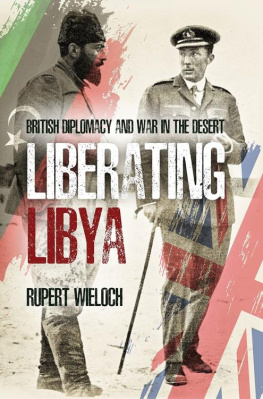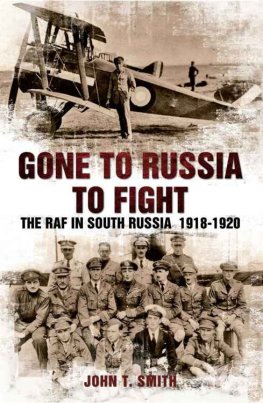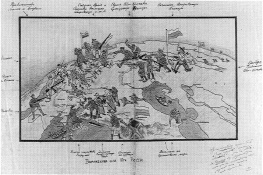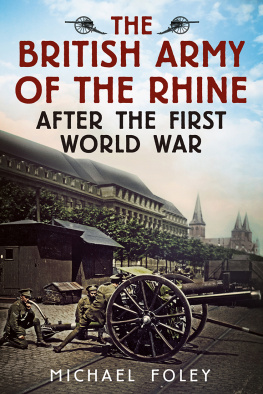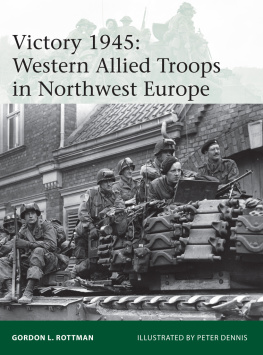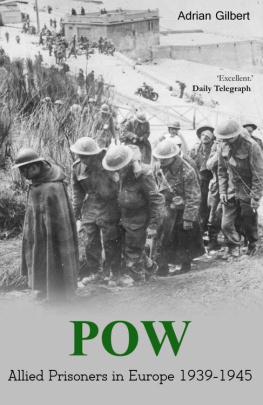Rupert Wieloch - Churchill’s Abandoned Prisoners: The British Soldiers Deceived in the Russian Civil War
Here you can read online Rupert Wieloch - Churchill’s Abandoned Prisoners: The British Soldiers Deceived in the Russian Civil War full text of the book (entire story) in english for free. Download pdf and epub, get meaning, cover and reviews about this ebook. year: 2019, publisher: Casemate, genre: Politics. Description of the work, (preface) as well as reviews are available. Best literature library LitArk.com created for fans of good reading and offers a wide selection of genres:
Romance novel
Science fiction
Adventure
Detective
Science
History
Home and family
Prose
Art
Politics
Computer
Non-fiction
Religion
Business
Children
Humor
Choose a favorite category and find really read worthwhile books. Enjoy immersion in the world of imagination, feel the emotions of the characters or learn something new for yourself, make an fascinating discovery.
- Book:Churchill’s Abandoned Prisoners: The British Soldiers Deceived in the Russian Civil War
- Author:
- Publisher:Casemate
- Genre:
- Year:2019
- Rating:5 / 5
- Favourites:Add to favourites
- Your mark:
Churchill’s Abandoned Prisoners: The British Soldiers Deceived in the Russian Civil War: summary, description and annotation
We offer to read an annotation, description, summary or preface (depends on what the author of the book "Churchill’s Abandoned Prisoners: The British Soldiers Deceived in the Russian Civil War" wrote himself). If you haven't found the necessary information about the book — write in the comments, we will try to find it.
Caught up in these events is Emmerson MacMillan, an American engineer who through loyalty to his Scottish roots joins the British army in 1918. Emmerson travels to England, where he trains with the Inns of Court Officer Training Corps and volunteers for service in the Far East.
The book explains how the bitter fighting ebbed and flowed along the Trans-Siberian Railway for eighteen months, until Trotskys Red Army prevailed. It includes the exploits of the only two British battalions to serve in the East, the Diehards and Tigers. An important chapter describes the fractious relationships between the Allies, together with the unenviable dilemmas faced by the commander of the American Expeditionary Force and the humanitarian work of the Red Cross.
The focus turns to the deeds of Emmerson and the other soldiers in the select British group, who are ordered to remain to the last and organize the evacuation of refugees from Omsk in November 1919. After saving thousands of lives, they leave on the last train out of the city before it is seized by the Bolsheviks. Their mad dash for freedom in freezing temperatures ends abruptly, when they are captured in Krasnoyarsk.
Abandoned without communications or mail, they endure a fearful detention with two of them succumbing to typhus. The deserted group become an embarrassment to the Prime Minister, David Lloyd George and the War Secretary, Winston Churchill after a secret agreement fails to secure the release of the British prisoners. Deceived in Irkutsk, they are sent 3,500 miles to Moscow and imprisoned in notorious jails. After a traumatic incarceration, they are eventually released, having survived against all the odds.
The specter of armed conflict between Russia and the West has dramatically increased with points of tension stretching from the Arctic to Aleppo, while cyber warfare and election interference further increase pressure. As a new Cold War hots up it is ever-more important to understand the origins of the modern relationship between Russia and the West. The events described in this book are not only a stirring tale of courage and adventure but also only lift the lid on an episode that did much to sow distrust and precipitate events in World War Two and today.
Table of Contents
Prologue/Introduction
Chapter 1 Philadelphia Parting
Chapter 2 Its A Long Way to Vladivostok
Chapter 3 Diehards and Tigers
Chapter 4 American Integrity
Chapter 5 Railroad to Omsk
Chapter 6 Trotsky or Kolchak
Chapter 7 Remain to the Last
Chapter 8 Dash for Freedom
Chapter 9 Captured in Krasnoyarsk
Chapter 10 Downing Street Dilemma
Chapter 11 A British Spy Escapes
Chapter 12 Deceived in Irkutsk
Chapter 13 Three Legged Ted
Chapter 14 Moscow Monastery
Chapter 15 HMS Delhi
What Happened Next
Appendices/Bibliography
Rupert Wieloch: author's other books
Who wrote Churchill’s Abandoned Prisoners: The British Soldiers Deceived in the Russian Civil War? Find out the surname, the name of the author of the book and a list of all author's works by series.


